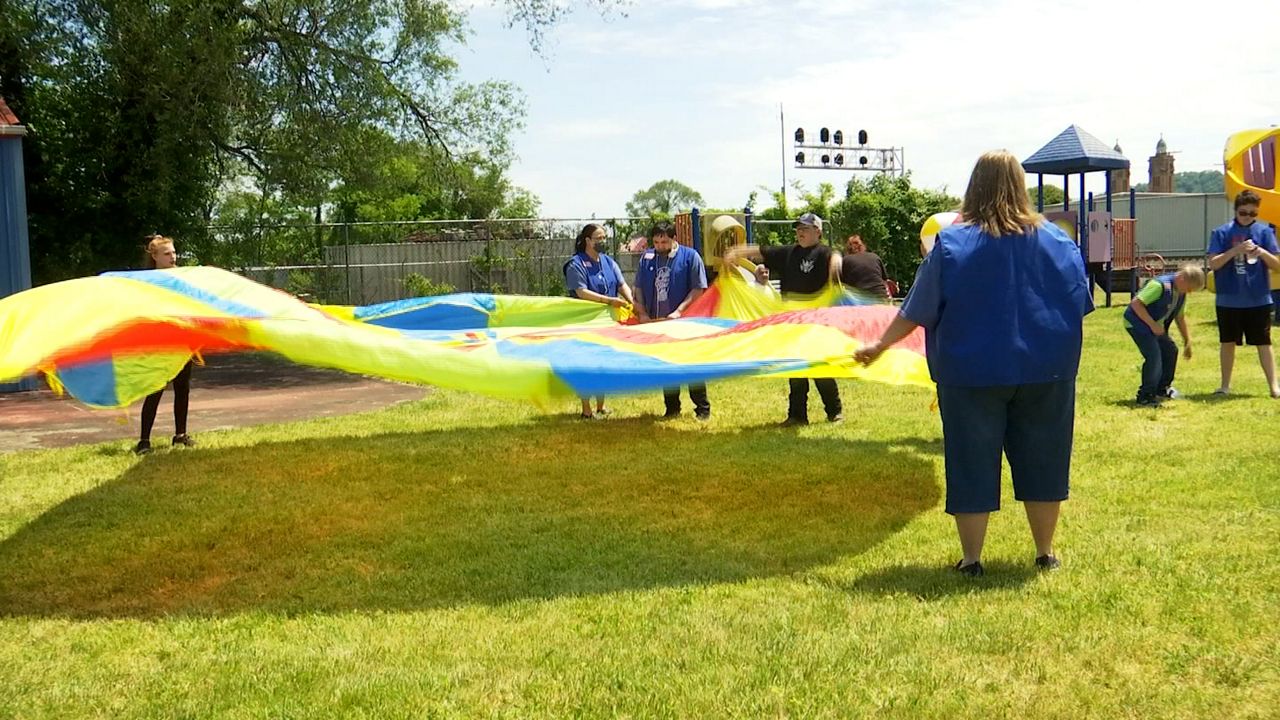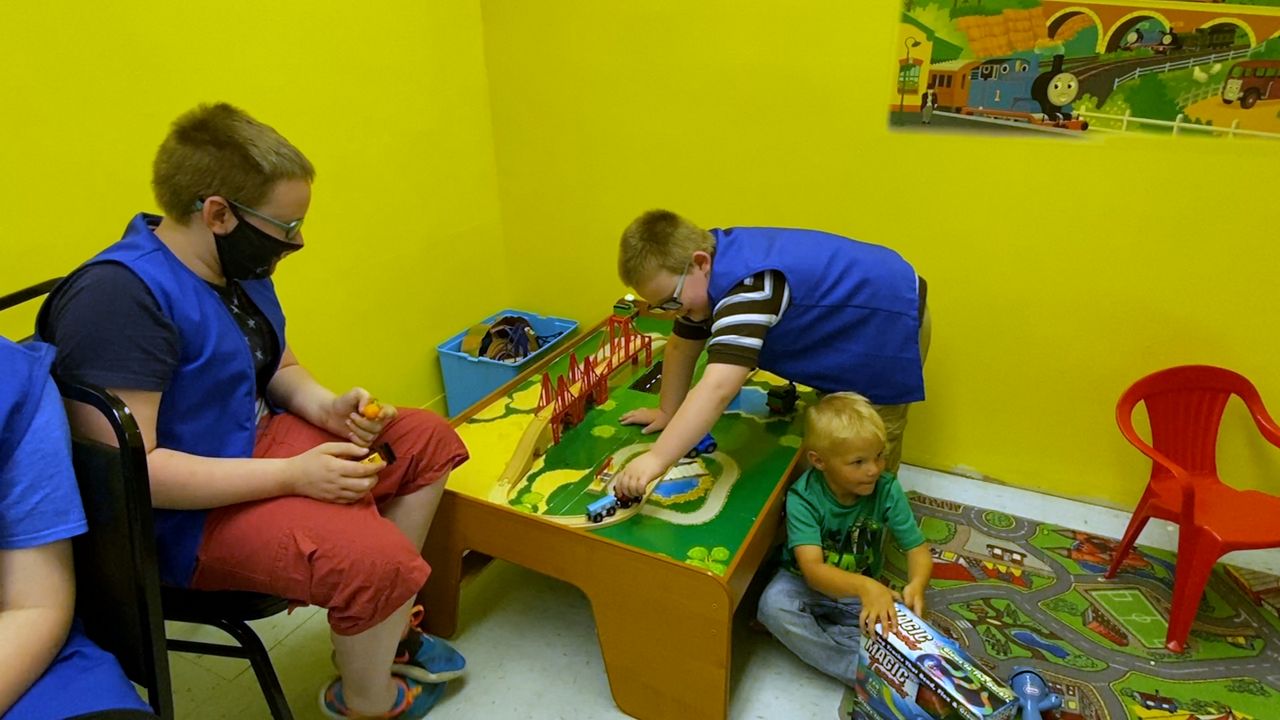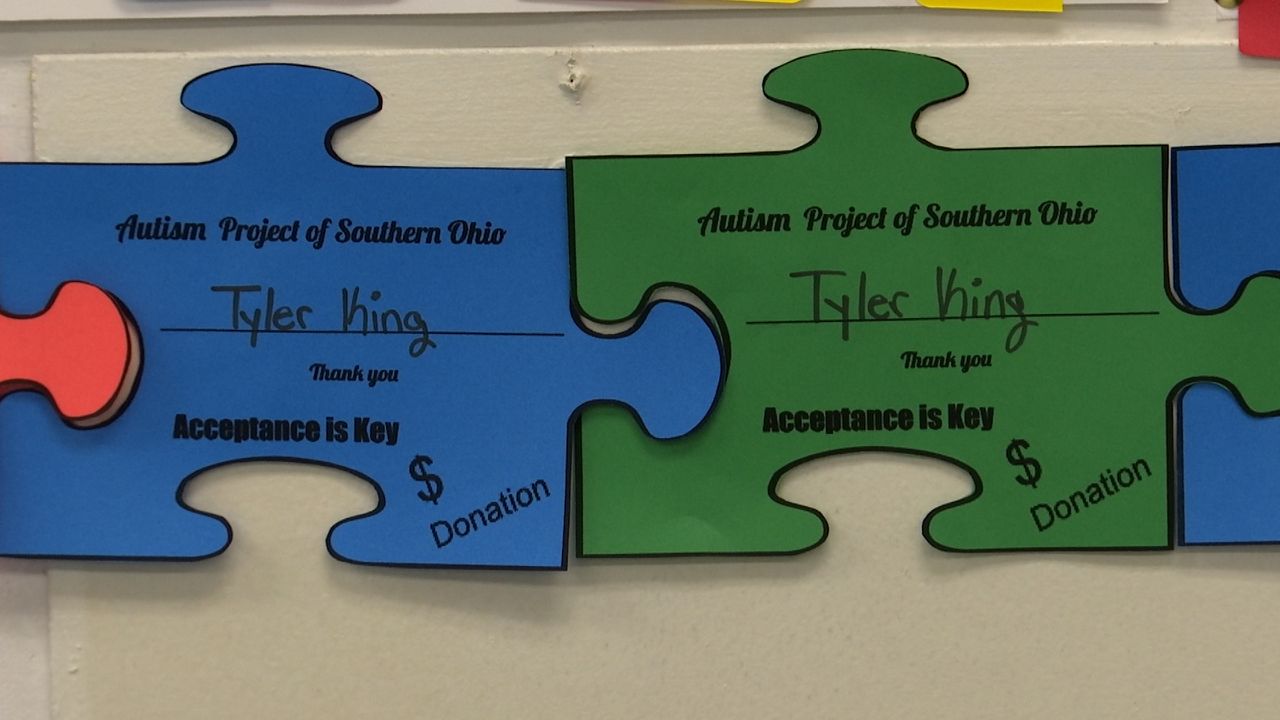PORTSMOUTH, Ohio — Once a month, a small, once-vacant building is buzzing in Portsmouth.
Kids are on the playground, nestled on the couch with a book or challenging each other to a game of Mario.
In the meantime, their parents are meeting in the main room, sharing their experiences, challenges, and stories as they navigate life with children on the autism spectrum, especially after a year of isolation that threatened this place they made their home.
The Autism Project of Southern Ohio is a regional support group for autistic children and their families.
It’s been around for more than 20 years and Halea King said her brother, Tyler, has been a part of the group since just about the beginning.
“My brother has a best friend that he’s met through the group and they live in Northeastern Kentucky so who knows if they ever would have met but he talks about him all the time,” she said.

Now in his 20s, she said Tyler still comes by every month, while his family puts in countless hours volunteering at the center.
Halea handles the website and any presentations at meetings while Michele King, their mother, handles programming, even creating the quest club group last year.
“A lot of the kids have never experienced being in a scout club or in 4-H or something like that,” Michele said. “They work together on badges, build a sense of accomplishment, being together and building on their friendships.”
Then last March the center closed.
“COVID hit,” Michele said. “We had to put a halt on it so really we just started back. This is our second time together this year.”
When the group was able to reunite for the first time in April, they knew it would be difficult to get back on track. In 2020, they had to cancel their annual puzzle piece fundraiser and this year, they were getting off to a late start.
“Usually, these would go in a business and a business would sell for a dollar apiece to their patrons to help support us,” Halea said, pointing out the paper puzzle pieces lining the inside of the building.
Those sales would help the Autism Project cover its operating expenses for the year, particularly the largest expense, rent.
The Autism Project started renting their building back in 2018, from the Portsmouth Inner-City Development Corporation for a total of $6000 a year.
For years, the group was looking for a permanent home. They used to rent a room at the New Boston Community Center, but sharing the space with other groups meant the kids and parents had to cope with strangers who might not understand their needs.
Cheyenne Shigley, who grew up coming to the Autism Project, said finding their own space made a huge difference.
“Everyone understands like the struggles that we go through,” she said. “Everyone has had a similar experience so they understand like the kids running around and they’re not bothered by it. The kids are allowed to be themselves and they don’t have to mask or anything.”

Halea and Michele said the building has always been a work in progress. The older structure was vacant for years before the Autism Project took over and they’ve put in thousands of dollars on improvements and renovations.
“We tried to think of OK what would our kids like most,” Halea said. “We thought of our entire age range from three to 26.”
They built three small rooms, a sensory room, a media room, and a playroom, as well as a kitchen, but Halea said the group knows as renters, none of those changes are permanent.
“If something were ever to happen and we would have to leave we’d leave all this effort and all this love and hope behind,” she said.

The group had to face that reality this spring as they struggled to reach their fundraising goals.
Halea said the group had to start an emergency campaign called “Save our Building” asking the community for support. The kids themselves bought puzzle pieces and sold them to their friends and neighbors.
By mid-May, they had the $6,000 they needed for rent, but Halea said the group isn’t ready to breathe a sigh of relief just yet.
“The thing is with the $6,000 is there’s utilities with that and we want to do things with our kids,” she said. "Everything costs money.”
She hopes as the pandemic fades they’ll be able to resume some of their regular fundraisers but there’s a lot of catching up to do. In the meantime, Halea said they’re keeping their “Save our Building” fundraiser open.
Eventually, the Autism Project wants to be able to buy their building, ensuring they can keep the home they built because Halea said the value it brings to kids and their families is priceless.
“This is a place where everyone can just be how they are and everyone can support each other,” she said.


